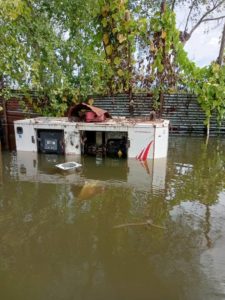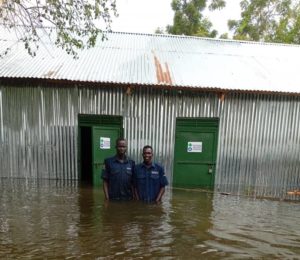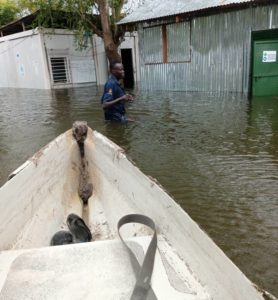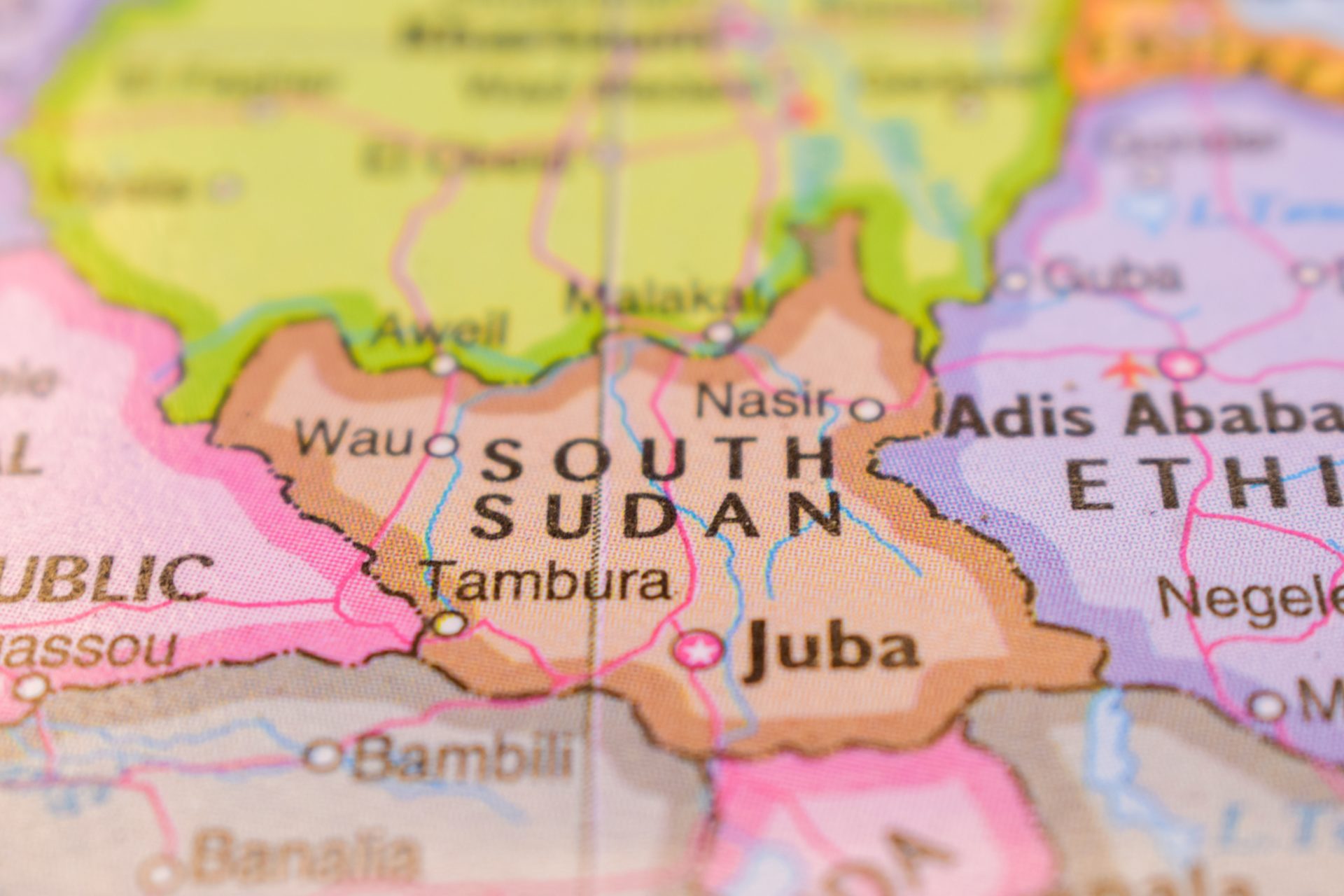Conflict and post-conflict regions make for fragile operating environments. The existing humanitarian crises – violent conflict, climate change, and the faltering economy – are only exacerbated by the recent wave of budget cuts. As a result, it is critical for private security companies to be cognizant of the dynamic contexts in which they operate. Here, John H Davies, the Director of Sustainability at Archer International Limited discusses the factors making up South Sudan’s operating contexts.
I. Why Operating Contexts Matter: South Sudan
The International Code of Conduct Association (ICoCA) emphasizes that private security providers (PSPs) must be not only technically competent, but also contextually and ethically grounded. Nowhere is this responsibility more relevant than in South Sudan, a country where years of conflict, political instability, and climatic shocks have produced one of the world’s most complex operating environments.
For Archer International Ltd, which has provided services in South Sudan since 2019, ‘operating context’ is not an abstract conceptualization. Rather, it is a lived reality shaped by fragile institutions, a downward spiraling economy, persistent conflict, and extreme environmental pressures. South Sudan remains one of the world’s largest recipients of humanitarian assistance, with aid agencies, NGOs, and international donors forming a major presence. Recently, global budget cuts, particularly in USAID funding, have once again reshaped the South Sudanese operating landscape. Understanding and incorporating these evolving contexts into companies like Archer International’s best practices, is essential in safeguarding clients, protecting local populations, and upholding ICoCA’s standards of accountability and respect for human rights. Accordingly, Archer considers four dimensions of South Sudan’s operating context that demand particular attention: 1. Opportunities for private security providers, 2. Ethical conduct and accountability, 3. Emerging risks for both communities and personnel, and 4. The positive contributions PSPs can make.
A study of Archer’s deployments in Fangak County will highlight commitments to these dynamics in practice.
II. Opportunities for Private Security Providers in Humanitarian Settings
Even as budgets decline, aid agencies cannot afford to operate without credible security frameworks. Secure transport, site protection, incident response, and risk management remain indispensable to conducting humanitarian operations. As a result, international actors increasingly value PSPs who can train and mentor national staff in areas such as security awareness and resilience, reducing long-term dependency on expatriate oversight. With contemporary policy choices increasingly manifesting in the form of reduced donor budgets, PSPs who can demonstrate value for money, through scalable services, flexible deployment models, and integrated risk assessments, are relatively attractive partners in humanitarian settings.
Security services are often perceived as a grudge purchase, and never more so than now. Alongside ICoCA, Archer continually strives to change this mindset. As budget cuts force humanitarian actors to prioritize where and how they operate, PSPs must adapt their services to be both cost-efficient and ethically responsible. It is important to ensure that protection of personnel and beneficiaries does not become a casualty of financial austerity.
III. Prioritizing Ethical Considerations and Accountability Measures
In fragile states, the line between security provision and exploitation can be perilously thin. Ethical dilemmas are amplified when local administrations, such as the South Sudan Relief and Rehabilitation Commission (RRC) exert influence over recruitment. PSPs are often obliged to accept personnel recommended by local officials, even when merit and competence might be questionable. This requires a level of subtle diplomacy and ground knowledge to achieve the best outcomes for both PSP and client. The challenge of merit versus patronage, i.e. hiring on local recommendation may reinforce political patronage in favour of professionalism and threaten the impartiality that Archer in particular strives for. It can subsequently expose PSPs to reputational risk and undermine trust with international clients.
On the flip side, sensitivity to community dynamics with regards to recruitment is more than just a technical process, as it can reflect community politics, ethnic balances, and local legitimacy. Missteps can fuel grievances rather than mitigate them – an unwanted outcome in a conflict setting – but measured and informed collaboration can lead to huge improvements. As a result, Archer chooses to build dialogues with local communities and agencies in order to understand the suffering experienced across South Sudan. This collaboration with local communities ensures that security services are seen as protective rather than coercive, resulting in activities such as regular contributions to flood defenses in the Fangak region.
Accountability in remote areas can be far more challenging than in mainstream locations like the capital in Juba. For this reason, Archer intensifies its efforts to engage in robust vetting (with the aforementioned pressure from local agencies in mind) and comprehensive training. Even when recruits come via administrative recommendation, PSPs must insist on employing clear vetting mechanisms such as background checks and references, while supplementing gaps with targeted training. Furthermore, aligning with ICoCA standards, as Archer does, ensures the provision of human rights training, grievance mechanisms, and transparent disciplinary procedures. It reinforces the company’s reality that ethical standards are non-negotiable, regardless of external pressure caused by complex operating contexts.
IV. Emerging Risks Affecting Local Populations and Security Personnel
Armed clashes persist across several regions, with intercommunal violence and localized conflict flaring up unpredictably and causing South Sudan’s operating environment to be defined by volatility. As a result, these dynamics create overlapping risks for civilians, humanitarian actors, and PSP personnel. Ongoing clashes disrupt humanitarian access and place PSP teams directly in harm’s way. Drawing from Archer’s current deployments in Fangak County, INGO clients have been directly affected by conflict in many ways including situations where staff and clients together have been forced to remain in darkness during night time to evade potential drone strikes or more cruder barrel bombs. Back in May, for instance, the hospital and pharmacy Médecins Sans Frontiers in Old Fangak, suffered from an aerial bombardment. The attack began in the early hours, when two helicopter gunships first dropped a bomb on the pharmacy, burning it to the ground, then went on to fire on the town of Old Fangak for around 30 minutes. At around 7am, a drone bombed the Old Fangak market. There were at least seven deaths and 20 injured.
In addition to violent conflict, climate stress, particularly in the form of severe flooding along the environs of the White Nile river – which runs the length of the country and merges with the Blue Nile in Khartoum – not only results in profound population displacement but complicates security operations, logistics and emergency responses. Wellington boots are standard issue for Archer staff in this region, and for several years, some are even forced to put them on before getting out of bed. Rising floodwaters also bring venomous snakes into conflict with humans as they search for higher ground. These circumstances have led to additional training and advisory notices on actions in the event of snake-bites.
 Moreover, inflation, currency devaluation, and scarcity of essentials lead to heightened crime in the form of increasing risks of theft, looting, and opportunistic violence. More so now than ever, based on managerial records dating back to 2008, South Sudan scores among the lowest on corruption and transparency indices globally. On a practical note, this causes the payment of salaries to be especially challenging. The complicated circumstances of economic collapse, requires Archer to garner relationships with local businessmen in remote areas. In the case of Fangak for example, the company pays its agent in Juba, who then distributes the salaries at the site. Given the complex operating environment where there are no formal banking facilities serving the region, PSPs must make alternate arrangements such as relying on trust-based relationships.
Moreover, inflation, currency devaluation, and scarcity of essentials lead to heightened crime in the form of increasing risks of theft, looting, and opportunistic violence. More so now than ever, based on managerial records dating back to 2008, South Sudan scores among the lowest on corruption and transparency indices globally. On a practical note, this causes the payment of salaries to be especially challenging. The complicated circumstances of economic collapse, requires Archer to garner relationships with local businessmen in remote areas. In the case of Fangak for example, the company pays its agent in Juba, who then distributes the salaries at the site. Given the complex operating environment where there are no formal banking facilities serving the region, PSPs must make alternate arrangements such as relying on trust-based relationships.
These conditions of climate stress and economic collapse aggravate the heightened hostility faced by both humanitarian staff and their security providers. Archer continuously adapts to these dynamic environments, rapidly shifting risk profiles, and unreliable state security support. This requires prioritizing duty of care to personnel through the provision of protective equipment, medical support, evacuation planning, and mental health provisions. These are no longer optional extras but essential obligations in the pursuit of holistic security strategies. Additionally, PSPs operating in humanitarian settings should take care to avoid actions that unintentionally escalate tensions for the civilian population.
V. Positive Contributions: Private Security Providers and Employment Opportunities
While discussions of private security in fragile states often focus on risks, it is equally important to recognize the positive contributions PSPs can bring to local societies. For Archer International, operating in South Sudan has meant more than securing compounds or escorting humanitarian convoys. It has also required investment in the community.
South Sudan’s economy remains shattered by years of conflict and inflation, leaving formal employment opportunities scarce. As a result, security work represents one of the few stable income sources for many. By hiring locally, Archer has provided livelihoods for hundreds of families, cushioning them against the shocks of economic collapse.
Building on recruitment, Archer invests in a complete range of foundational security training, including discipline, risk awareness, access control, first aid, firefighting, deportment, health and welfare modules. These also include human rights and ICoCA compliance modules – for most a completely new topic of understanding – ensuring staff can implement the standards that govern their work. Furthermore, specialist training such as radio operations, access control and conflict de-escalation equips employees with transferable skills. Such training not only enhances professionalism in the private security industry but also strengthens community resilience, as trained individuals often bring their knowledge back into their local networks.
Unlike many other sectors in South Sudan, the private security industry can offer pathways for career progression. Talented staff can rise from guard to supervisor, proceeding to operations management. In some instances, high-performing Archer personnel have been relocated, either within South Sudan or to other regional operating landscapes, broadening their horizons and opportunities.
This sort of mobility demonstrates that PSPs can be engines of personal growth, merit-based recognition, and social mobility, even within highly volatile environments.
VI. Understanding Operating Contexts in Fangak County
Fangak County makes for a relevant case study as it exemplifies the extreme operating conditions faced by both humanitarian actors and PSPs in South Sudan. Located in Jonglei state, in the northern part of the country, the area is currently experiencing a severe humanitarian crisis driven by a combination of violence, recurrent flooding, and displacement.

As a result, insecurity has forced many people to leave their homes, causing overcrowding in safer areas. Large parts of the county are submerged, rendering roads completely impassable. With no bicycles, motorcycles, or vehicles in use, movement in the region depends on boats and canoes owned by humanitarian agencies or local businesses. This has led Archer International to provide additional equipment in the form of life jackets and uphold other safety protocols on riverine movement. Moreover, humanitarian movements also require prior approval and official notification from local authorities. With water routes between areas under government or opposition control being blocked, access to food supplies is cut off, resulting in inflated market prices. Once again, contextual knowledge is critical for PSPs to ensure safety of their personnel and clients. Aggravating limited mobility, floodwaters and the practice of open defecation, raise the risk of waterborne diseases such as cholera. Violence is yet another risk. A large majority of people owns a firearm as they don’t trust the government’s ability to protect them. This has hindered the efforts of disarmament initiatives.
Archer International has been successfully operational in Fangak County since 2020. This has only been possible through close community engagement, securing acceptance by building trust with local actors and government authorities. 
Archer supports staff welfare by providing security officers with essential items and timely payments, in order to keep personnel motivated and enable them to support their families. The company also maintains a strong supervisory presence, with regular managerial visits, which allows for a dynamic assessment of both the environment and the needs of staff and contracting clients. Remaining present in one of the most inaccessible and vulnerable parts of South Sudan demonstrates that security providers can adapt, endure, and contribute to humanitarian access even under the harshest conditions.
VII. Recommendations
Drawing on years of operational experience in South Sudan, Archer International has witnessed firsthand how local realities test international standards. From navigating recruitment pressures to managing evacuations under fire, the lessons that ‘context is king’ are clear. Adherence to best practices as outlined by ICoCA leadership allows PSPs to understand and overcome such difficulties and to operate sustainably, ethically and with a particular focus on human rights.
Archer wholeheartedly recommends that PSPs Invest in context-specific training and cultivate community dialogue mechanisms, and not just technical capacity. To any humanitarian clients, the company reiterates that while cost-cutting on security may deliver short-term savings, it increases long-term risks to staff and beneficiaries.
Policymakers and donors, additionally, should increasingly factor in the reality that PSPs are essential partners in fragile environments. As a result, funding structures should consider integrating ICoCA aligned security as a core enabling component of humanitarian programming, instead of considering it an expendable overhead.
VIII. Final Notes: The Value of Contextual Awareness
South Sudan reflects that private security provision in humanitarian settings cannot be divorced from local operating contexts, while highlighting the opportunities and dangers involved. For Archer International and other ICoCA Members and Affiliates, the challenge is to deliver reliable, ethical, and accountable security in environments that test all three values daily.
PSPs can help sustain humanitarian operations and protect vulnerable populations, but only if they navigate recruitment pressures responsibly, uphold accountability in the face of external influence, and prepare for risks that evolve by the day. As humanitarian budgets shrink and conflict pressures grow, contextual awareness will remain the defining factor between security providers who endure, and those who fail.
The views and opinions presented in this article belong solely to the author and do not necessarily represent the stance of the International Code of Conduct Association (ICoCA).


